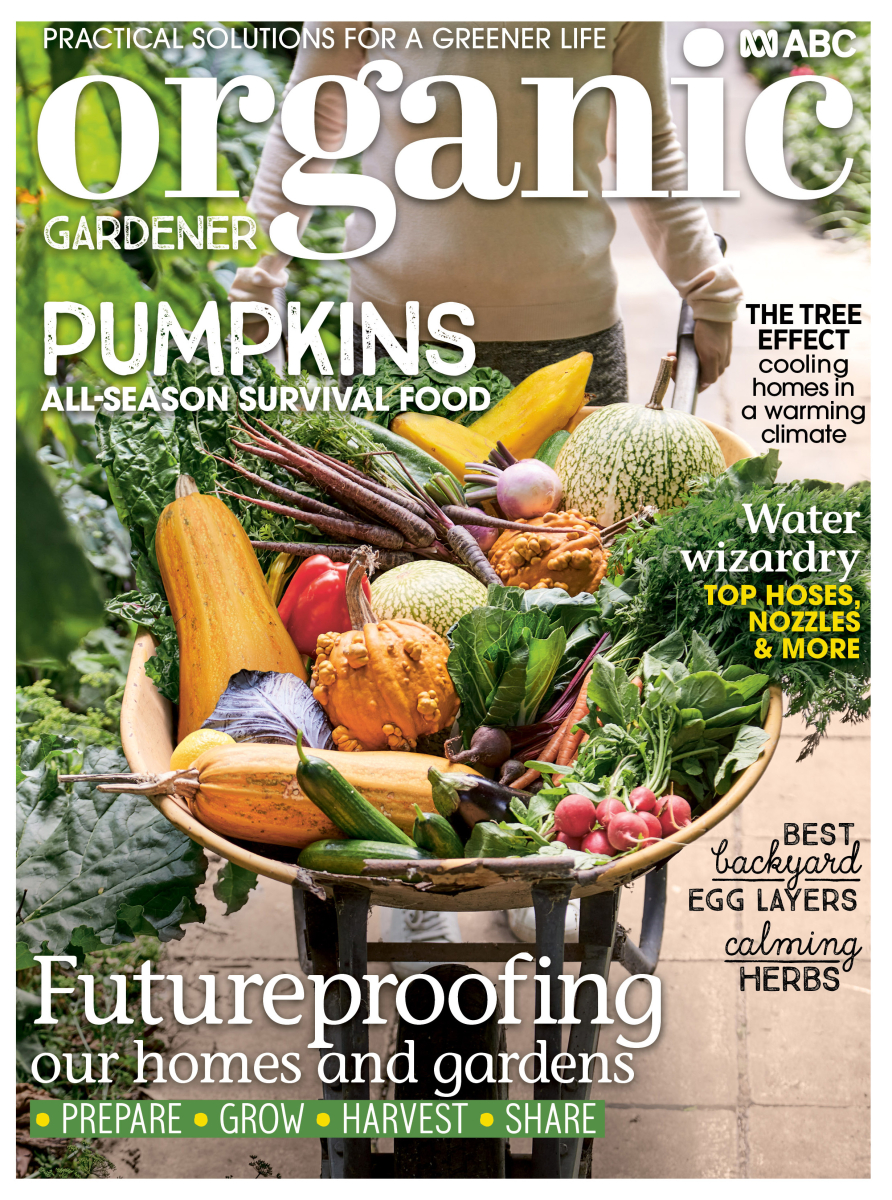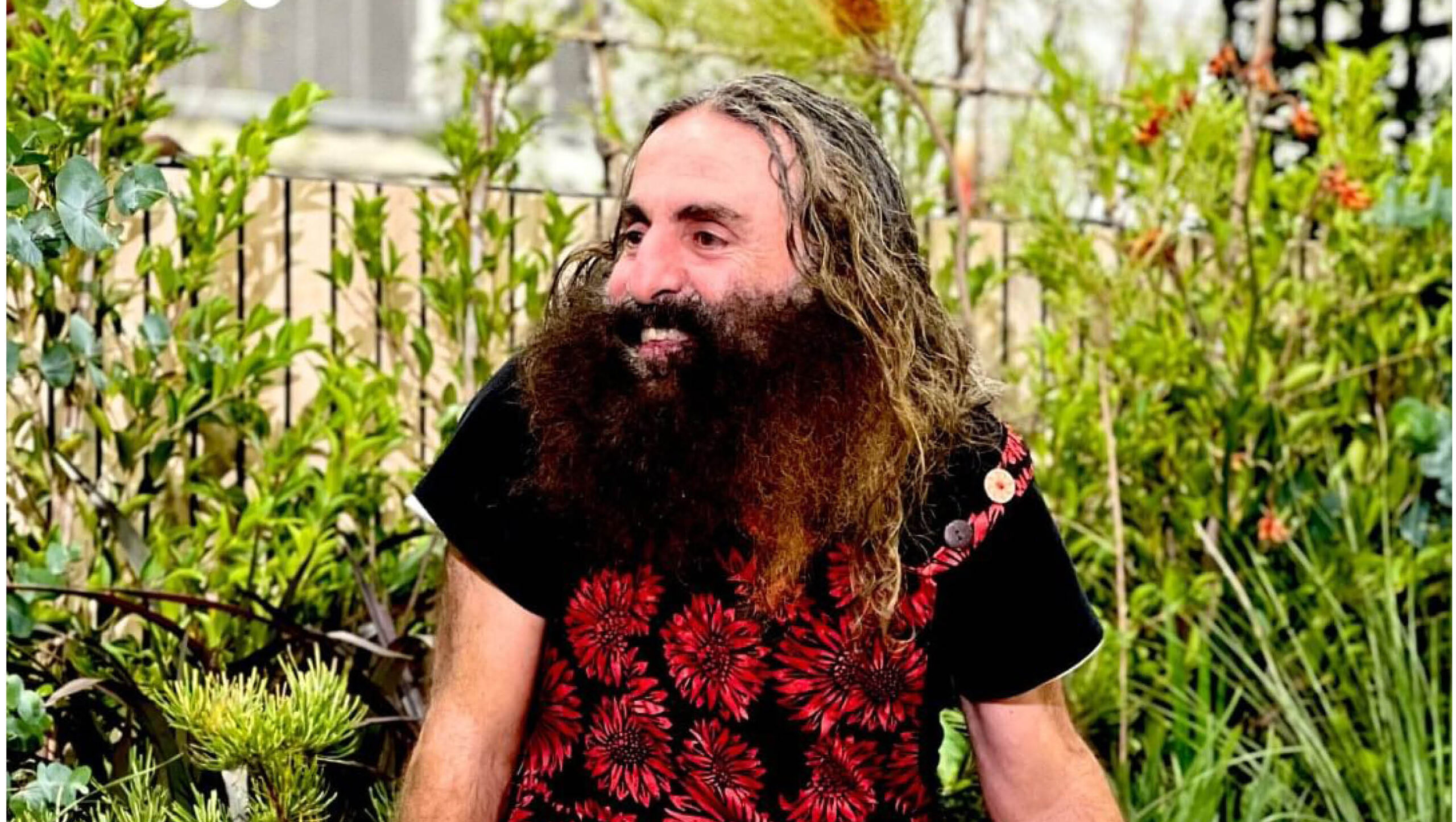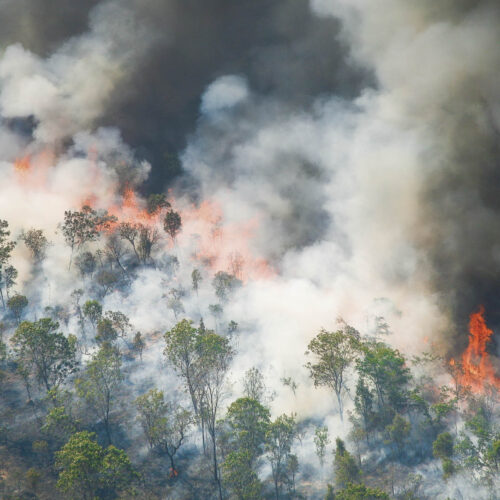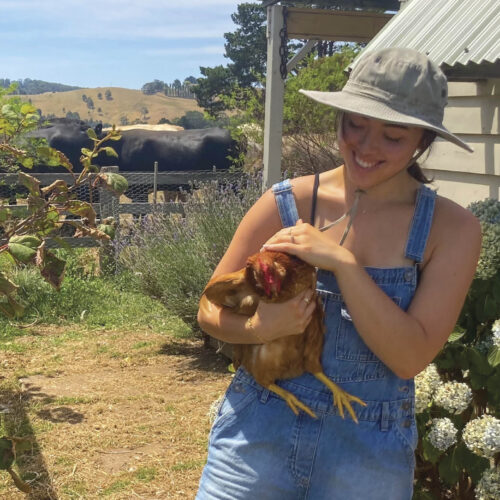In conversation with: Costa Georgiadis
2024-11-12T12:08:56+11:00
Costa Georgiadis's love of gardening is an absolute joy, and it's catching. The best part? He also has heaps of hope for our future.
Catching Costa (no need for surnames with this fellow) for an interview isn’t easy. He is a busy man, with a full agenda that can involve anything from sustainability festivals and climate change discussions, to filming ABC Gardening Australia. But there’s no pretence, no posturing: just a man who wants to give 100 per cent to his community, whether that’s the many followers he’s gathered on social media, talking to kids as they work in school gardens or having a cuppa with a mate.
Q: When you first took up the hosting role on ABC Gardening Australia in 2012, you spoke of wanting to “clean the mirror for people to see more clearly how their actions impact on the community, the country – and the world.” What did you mean?
A: I suppose what I meant was that we can be dragged along in the fog of the day-to-day and the “When I have this I will be happy” and “When I have that I will be happy” and “When I have the latest version of this” all will be in order. But what I was trying to get at was a perspective where we look at the day to day for what it’s worth and be in that day to day and not be sold a kind of “everything will be better when”. Because everything is better now when you are just doing and involved in the real, practical side of contributing, engaging, and making time to see your links with the people around you, not just your family, but your broader community. We do have a wonderful world around us and it’s good now.
Q: How do you think you are going with changing that perspective?
A: One of the things I wanted to do was really drive that family and community, and connection with children and family in the bigger picture. So I feel like the momentum just keeps on building – at events I’ve attended recently there have been so many families with children and I think of all the work that’s being done by early childhood engagement and education, and schools and school gardens. I feel like the momentum is getting stronger – and that momentum also comes with the bigger public profile, like our profile at the recent Logie Awards. But that’s all step by step; it hasn’t happened because of one moment. It’s really the process of a lot of little steps, like the work people have put into school and community gardens over the last 10–15 years. That impact and reach has fertilised real traction.
Q: You are out there, talking with gardeners, children, etc — what’s the feeling about the future of the planet?
A: My thought is that we have to be conscious that we can’t live in the urgency space – there is urgency and I don’t deny that – but we can’t immerse people in urgency all the time, because then they’ll just be deflated and feel disempowered. One of the most exciting things for me is when people see a story we do or read an article in a magazine, and take some action and say we’re now doing this with our family; we planted a whole lot of beneficial plants or we’ve made a bug hotel for native bees. It’s those little, practical things that are able to take the urgency and turn it into real, active change. And, go ahead, call it ‘activism’, because it’s people getting ‘active’. A lot of people immediately associate activism with being some extreme disturbance, but people are disturbing the status quo because they’re doing things; they’re actively engaged with the world around them. And that, for me, is an encouraging thing.
Q: How do you give people that feeling of power and that they have the capacity to take action?
A: One of the most constructive things people can do, and this is where I see the positive side of social media and all of the digital connected world we live in, is that we can amplify good stories, and put them through a prism of, not just blind optimism, but real, quantifiable action. If we amplify that and motivate people to realise they have real change-making capacity, then they become a role model without having to put a role model hat on, just by doing and living, and exercising sustainable practices.
Q: Your verge garden is renowned, both in your own suburb and across the nation because it’s been shown on ABC Gardening Australia — how did it start?
A: Because we were making it on television I couldn’t guerilla it. So I had to go through all the steps and the processes. I had to be totally transparent, putting it through all of the local requirements of the council. In doing that, it meant I could confront those guidelines and policy issues that hadn’t necessarily moved with the times and was able to help craft and influence some change, which is now used by other people to provide a building block for their own councils. The flow-on effects have been very positive.
Q: What does living an organic life mean to you?
A: To me, it’s about slowly taking responsibility for not only the things you bring into your life but the consequences of choosing or purchasing those things. When we do that, rather than fighting a system that exists, we create the alternative and we back them with our dollar – we underestimate exactly how far reaching our actions are by what we buy. To me living an organic life is becoming part of a regenerative generation, where our actions and our choices regenerate the planet, not degenerate it.
Q: You seem to have an endless supply of energy, what restores you when the batteries are low?
A: Lots of different things. Nothing restores me better than having a swim at the beach. I also love walking and bicycle riding. Probably the other thing that restores me, without question, is just losing time in the garden. You know, thinking I’ll just go down and check on something and then suddenly 45 minutes has gone – I find that stopping of time in the garden is the ultimate regenerator for me.
You can get our latest issue and learn more about helping the planet. Visit ABC Organic Gardener Magazine Australia.







